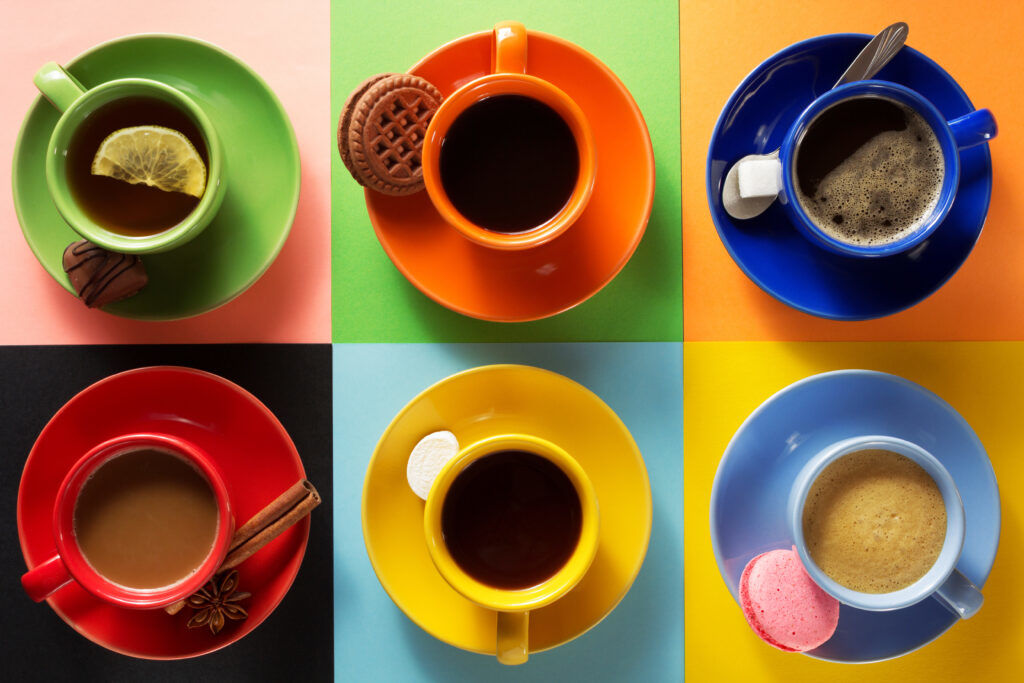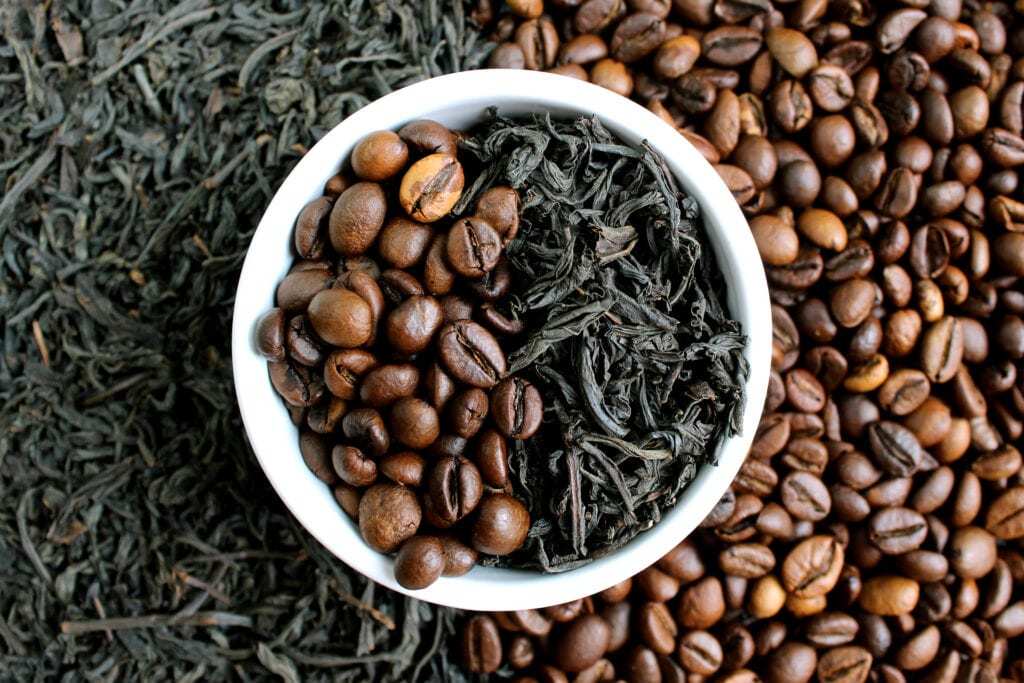
Coffee or Tea – Which is Better?
On a day out, everything went fine until the question of questions came up; Ma’am, would you like Coffee or Tea?
The red emergency alarm went off, and each cell of my brain ran towards the ballot box, jumping on top of each other to cast a vote. The situation was chaotic, messed-up, and suffocating as the crowd trampled over each other and alternating whisper waves of Kohhhhfeeee-no-Teahhh-no-KOHHHHHFEEEEE, overwhelmed me.
I’m pretty sure that I had some really weird expressions because everyone at the table stared at me wide-eyed and I even received a compliment later;
You looked as if Voldemort was coming for you.
Well, the embarrassment of that evening became my motivation for this blog. Enough of this confusing agony, the winner needs to win. And today only. So, come on suffering caffeine addicts, follow me!

Caffeine – The common ground
Perhaps, it is due to the mere presence of our favorite stimulant that there’s even a competition between the two. The powerful effects of caffeine keep us hooked to both the beverages. However, the varying quantity of it incites the Coffee VS Tea war.
On average, consuming 400 milligrams of caffeine will not disturb your healthy lifestyle and diet at all. In fact, science has proven that appropriate and regular intake of coffee and tea can improve your mood and enhance your athletic and mental performance. It can even reduce the risks of diabetes type 2 and chronic diseases. It does so by improving insulin sensitivity in the body.
This health-friendly drug may also protect your body from metabolic syndrome, dementia, Alzheimer’s, etc. That’s because caffeine happens to be rich in anti-oxidants that contribute to the prevention of several diseases. However, the varying taste of coffee and tea indicates a variation in the richness of anti-oxidants, which in turn strikes up the big question; is coffee healthier or tea? Scroll down to unlock the answer!

Nutritional Stats
Although both the coffee and tea hold equal nutritional value regarding caffeine, they do have their differences. Let’s study each beverage individually to comprehend these differences better.
1- Tea
The first and foremost difference between coffee and tea is the energy levels. Despite the low amounts of caffeine, the tea has proven to provide ample energy to one’s body, but subtly. When you drink a cup of tea, energy doesn’t hit you instantly, like a wild ocean wave crashing onto the rocks. Rather, it comes soothingly and smoothly, like a sea wave washing onto the shore. It is the presence of the L-theanine in the tea that causes such effects. The L-theanine stimulates the brain and inflicts upon anti-stress effects. It increases the A-waves in our brain, which causes us to relax and calm down.
As caffeine is also present in the tea, the L-theanine balances its instantaneous effects, which results in a relaxed yet alert mind. According to several studies, the consumption of both L-theanine and caffeine together can help promote attention, sharpness, concentration, and alertness in one’s body.
Moreover, tea comprises of polyphenols like Theaflavin that has proven to reduce excessive weight gain. The Theaflavin inhibits the pancreatic lipase, which is an integral part of fat metabolism. Consequently, the blood lipid concentration drops, which reduces weight gain.
2- Coffee
The night before exams or assignment submission, when the sleep is overpowering your will to complete that last chapter, what do you prefer-Tea or Coffee? Well, I bet, the majority goes with a cup of strong coffee. It is because coffee boosts one’s energy levels immediately. Unlike the tea’s smoother energy waves, it comes crashing, like a hurricane. It’s almost as if the lightning has struck, leaving the body buzzing with energy. Instantly, you can feel the sleep recoiling and a new sense of powerfulness taking place. Finally, you can complete that last chapter now!
Well, a coffee bean and tea leaf have a varying amount of caffeine. Certainly, the coffee beans have a much higher amount, which attributes to the high energy levels in coffee. The caffeine elevates the Dopamine levels and inhibits Adenosine. Dopamine is the chemical substance that increases your heart rate, alerts your mind, and has those coffee addictive properties. The Adenosine is the sleep-inducing substance, which gets inhibited by caffeine. Thus, making you feel less tired and sleepy. Moreover, coffee gets 99% absorbed into one’s bloodstream in a mere 45-minutes after ingestion. Studies have reported the presence of a high concentration of caffeine in the bloodstream in only 15-minutes!

Verdict
So here comes the question again; Is Coffee better than tea? Well, in terms of an energy boost, yes, it is better. You can rely on Coffee for that sudden boost when the time demands work. However, the constant heavy consumption of coffee, that too, in humid weather, can cause some serious health issues. On the other hand, the health benefits of tea certainly elevate its position and make it a better option.
In case you’re still wondering what I chose that day, well, I ordered a mix!
Leave your comment
You must be logged in to post a comment.